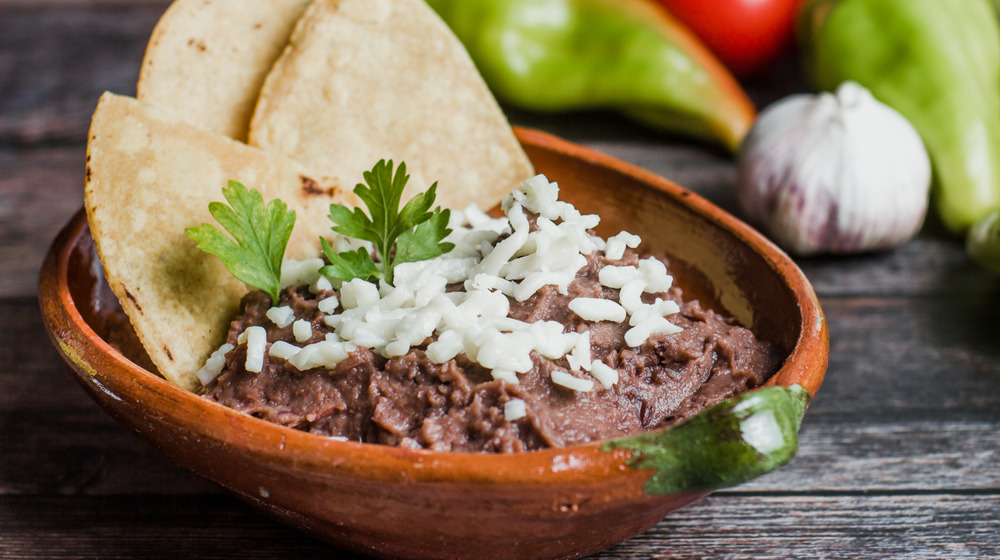Read This If You Recently Bought El Abuelito Cheese
If you're a fan of Mexican soft cheese or use it in your cooking, now may be a good time to check your fridge to see if your stash was manufactured by El Abuelito Cheese and is one of three brands: El Abuelito Cheese (Connecticut, New Jersey, Pennsylvania, New York), Rio Grande Foods (Virginia, North Carolina, Maryland), or Rio Lindo (North Carolina, Maryland). The company's products are subject to a recall, because some tested positive for listeria, a type of bacteria that can cause the food-borne infection listeriosis (via Self).
The FDA recall covers a list of 17 different brands and types of cheese manufactured by El Abuelito, including queso fresco, Oaxaca and cotija cheese, as well as crema. The cheeses in question were sent to supermarkets, wholesalers, and retail stores in early February, and they have a sell-by date of March 28. The FDA says the products are being pulled off shelves "out of an abundance of caution" and because listeria has the potential to make a person who has ingested it very ill.
Listeriosis symptoms are similar to other types of food poisoning, including fever and diarrhea, and can actually become present up to four weeks after eating contaminated food (via Centers for Disease Control). According to the Food Poison Journal, 10 people have been infected so far due to the listeria outbreak.
This is how queso fresco is used
Queso fresco or "fresh cheese" is a type of white cheese that we usually enjoy as a cheesy add-on to appetizers, in tacos, or as a topping for enchiladas, huevos rancheros, or beans. Because queso fresco doesn't melt well, it doesn't make a particularly good filling for a quesadilla. Queso fresco most resembles feta, paneer, and ricotta cheese, which means all three will make good substitutes. And if you can't find any of the cheeses, you can make your own with milk, lemon juice (or vinegar), and some salt (via MasterClass).
If you did find that you might have purchased a recall-listed El Abuelito product, the CDC wants you to go through your fridge and clean and sanitize everything properly. Due to the possibility of cross-contamination, this includes not just the refrigerator itself but also containers holding the cheese and kitchen surfaces that may have come in contact with it – because listeria can not only survive in the fridge, but can easily contaminate items that are around it.

